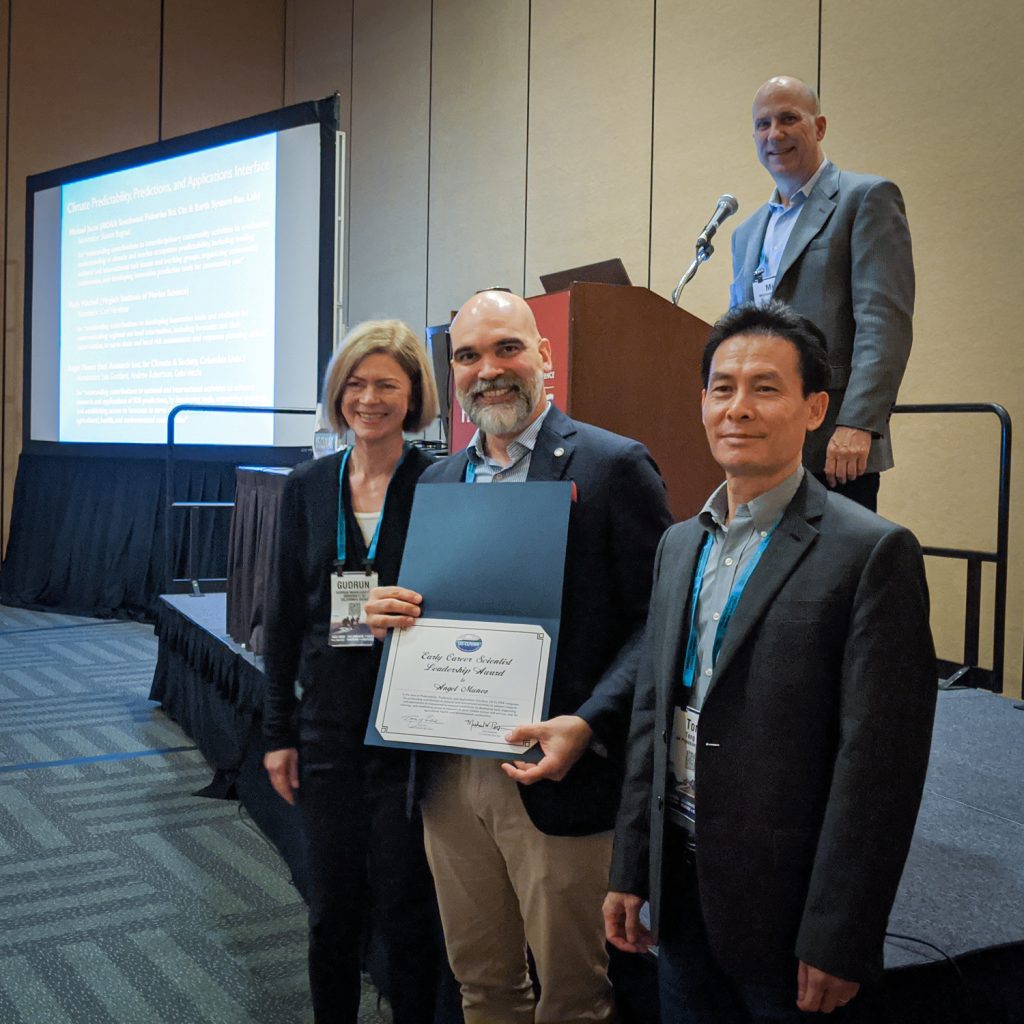Ángel Muñoz receives US CLIVAR Early-Career Award
IRI climate scientist Ángel Muñoz has been given an Early Career Scientist Leadership Award by the U.S. Climate Variability and Predictability Program (US CLIVAR) for ‘outstanding contributions to national and international work to advance research and applications of subseasonal-to-seasonal predictions’.

US CLIVAR is a national program that coordinates and advances climate prediction research in the country.
“Ángel is a natural leader who possesses an endless fascination with climate and its impacts,” said IRI Director Lisa Goddard. “His enthusiasm is contagious and unstoppable. It has helped him create new partnerships and research opportunities, and make solid contributions to big initiatives both in his home institution and on international advisory groups.”
One such big initiative is the Adapting Agriculture to Climate Today, for Tomorrow Columbia World Project, which aims to improve food security by increasing climate knowledge in six countries that are particularly dependent on agriculture and vulnerable to the effects of climate change and fluctuations. Muñoz leads ACToday’s activities in Colombia and Guatemala.
Recently he and his team helped the national meteorological agencies of both countries develop and launch a state-of-the-art climate forecasting system known as NextGen. The new system gives Colombia and Guatemala a powerful upgrade to their forecasting capabilities, and enables them to provide their institutions—and citizens—an unprecedented caliber of climate information for decision making in agriculture, public health and other sectors.
Muñoz created the construct of NextGen, which organizes IRI’s prediction methodology for the subseasonal-to-seasonal timescales into a systematic approach that is more amenable to training and real-time prediction.
“It wraps an understanding of the sources of predictability, model evaluation and calibration, and also skill assessment of the resulting forecast system together as integral to the provision of automated, objective real-time forecasts that can provide a full range of outcomes with meaningful probabilities, and which can be applied across timescales,” said Andrew Robertson, the head of IRI’s Climate Group.
Muñoz has worked tirelessly over the past two years to train forecasters from Latin America on the new system and help implement it within their national institutions. Word spreads quickly in the prediction community, and countries outside the region have asked for similar capabilities.
“Ángel manages to both expand our understanding of the climate system in a very fundamental manner, and to apply climate understanding in very practical ways,” said Princeton University’s Gabriel Vecchi. “He can do this thanks to a unique combination of skills, and a commitment to driving practical benefit to the world. He is a true leader.” Vecchi, Goddard and Roberston nominated Muñoz for the award last month.
Muñoz has been invited to serve as a member of numerous national and international climate prediction efforts, including NOAA’s Modeling, Analysis, Prediction and Projections (MAPP) Subseasonal-to-seasonal Task Force and the World Climate Research Program (WCRP) Working Group on Seasonal-to-Interannual Prediction.
US CLIVAR announced the winners on Thursday evening during a “Town Hall” event at the annual meeting of the American Geophysical Union in San Francisco. Muñoz was one of nine scientists to receive an early-career award.

You must be logged in to post a comment.